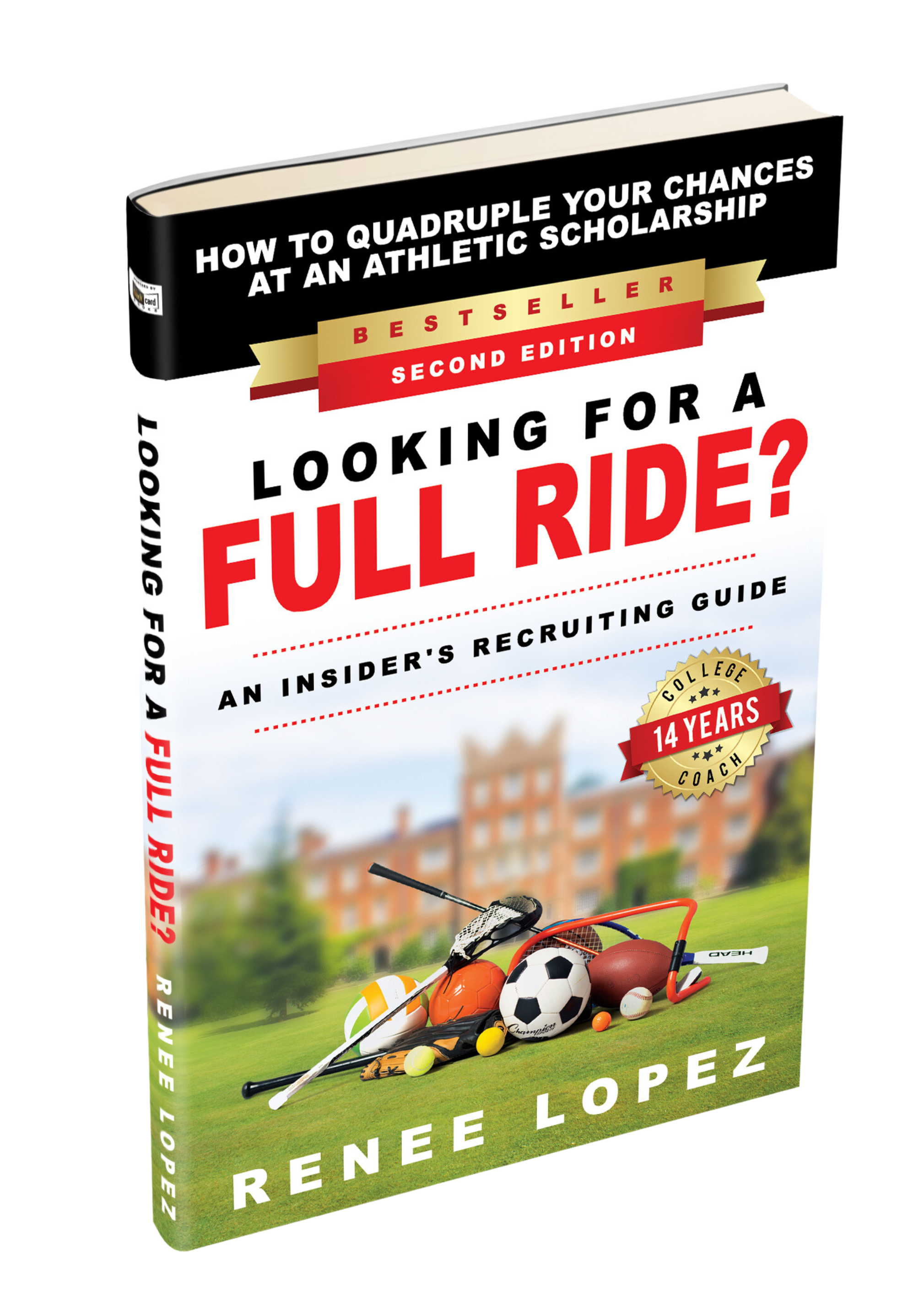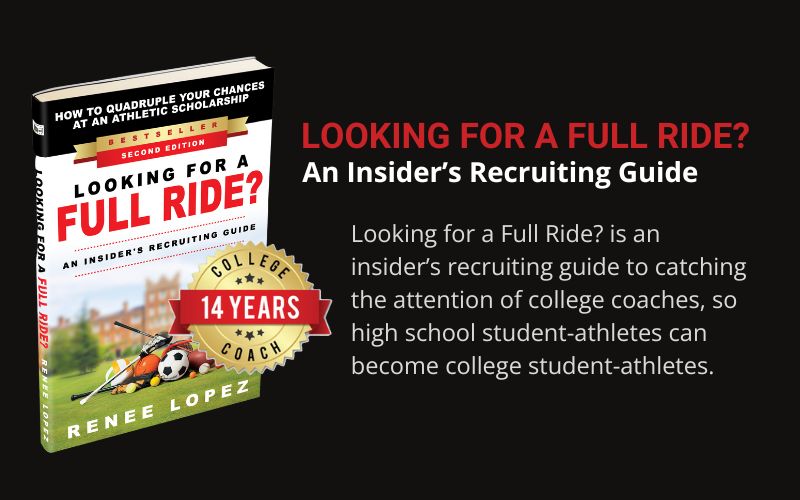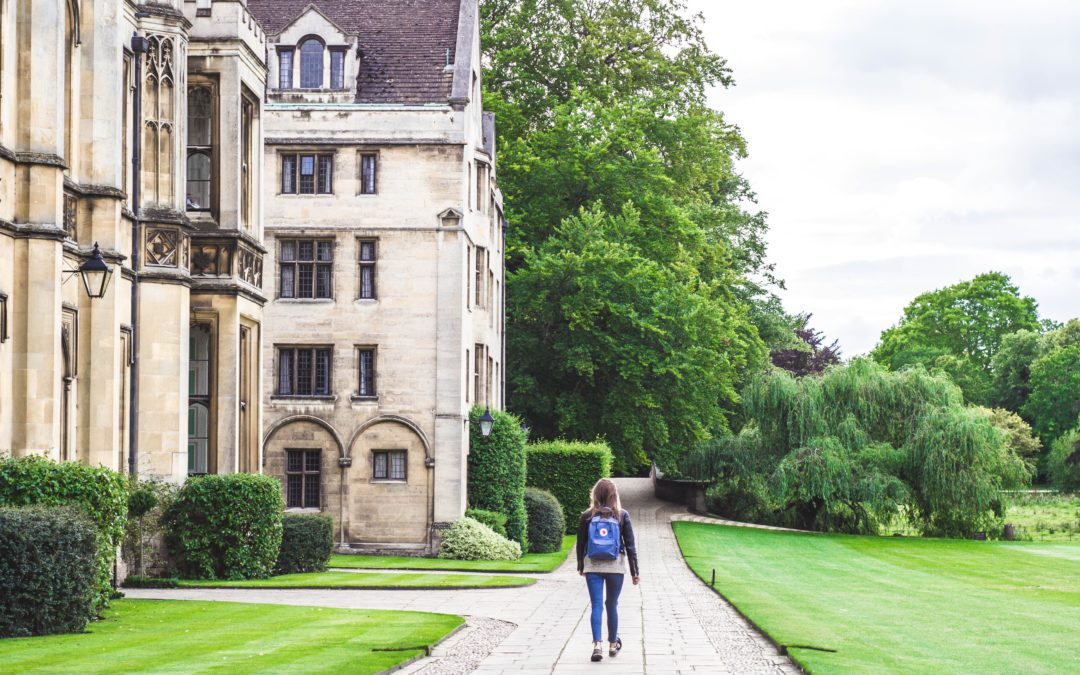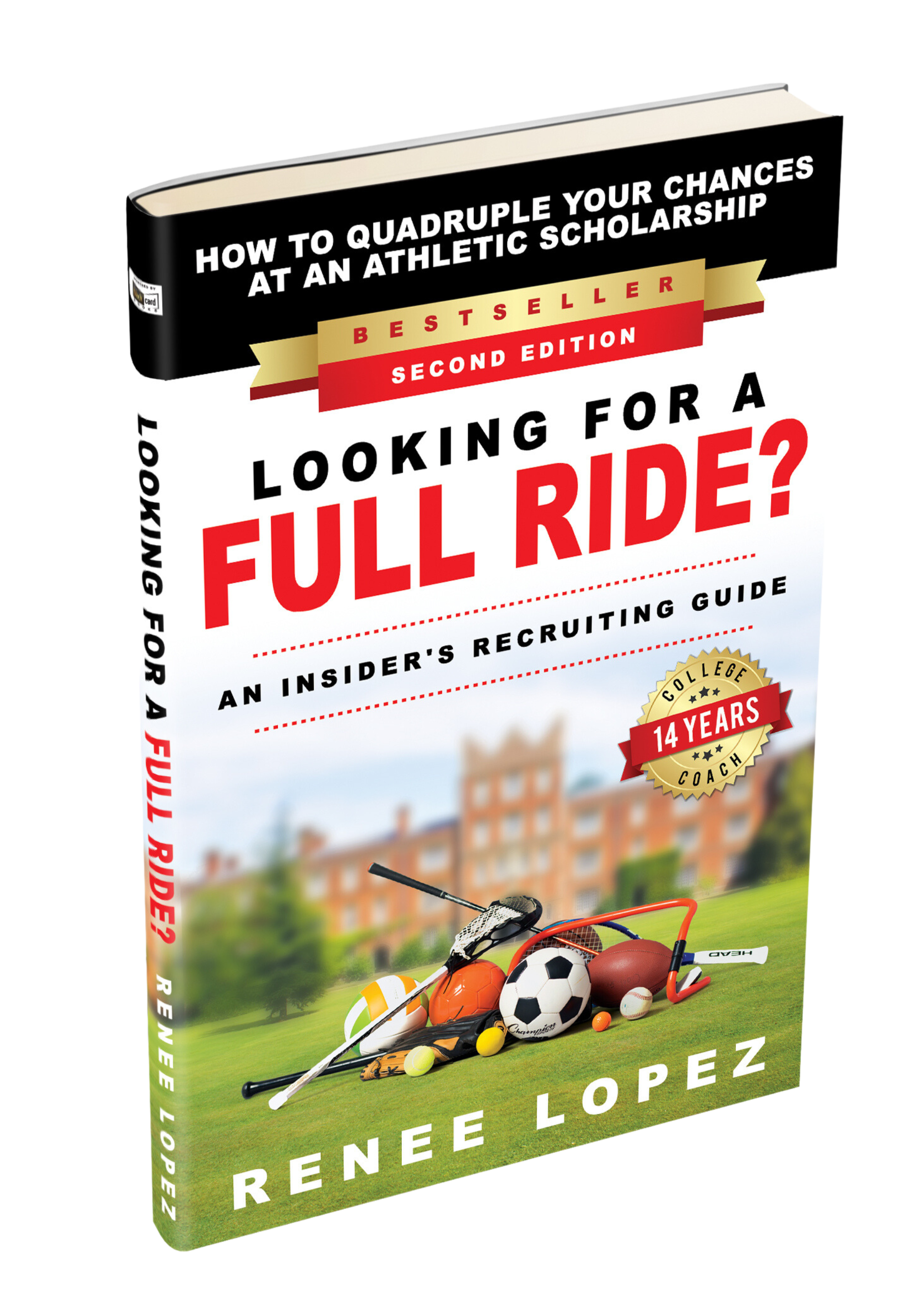9 Questions to Ask Regarding Safety Procedures When Visiting A College Campus
 Having been a college coach for fourteen years and now in running my own business as a coaching and athletic recruiting educator, I regularly present in high schools and youth sports organizations. I conduct seminars to help guide student-athletes, parents, coaches, and other administrators on leadership development, the college recruiting process, and ways to obtain athletic scholarships. The research for my book, Looking For A FULL RIDE?: An Insider’s Recruiting Guide, puts me in contact weekly with school personnel and student-athletes.
Having been a college coach for fourteen years and now in running my own business as a coaching and athletic recruiting educator, I regularly present in high schools and youth sports organizations. I conduct seminars to help guide student-athletes, parents, coaches, and other administrators on leadership development, the college recruiting process, and ways to obtain athletic scholarships. The research for my book, Looking For A FULL RIDE?: An Insider’s Recruiting Guide, puts me in contact weekly with school personnel and student-athletes.
If I can be completely honest and authentic, especially living in central Florida, having 3 close friends who are teachers, and with my career, it has been a very, very tough few weeks. I didn’t know any one of the victims personally, but I know many who were connected to the athletic community at Marjory Stoneman Douglas High School. I live only a few hours from the location where multiple student-athletes and athletic staff were victims of this horrific shooting. I also lived in Colorado, twenty minutes away from the Aurora theatre shootings and had a former player who attended Columbine High School when her nightmare played out. All of these situations combined force me to think a bit differently each time I grab my laptop and lock my car to walk in to present a seminar at a high school.
As I cried watching the videos of the high school students running out of the school in complete terror, I thought of the hundreds of high school and college campuses I have visited over my 20 years as a sports industry professional. I rarely had to think about my own personal safety or my athletes’ safety (beyond a few game-related injuries, of course). It made me think I needed to have a slightly different tone and direction than I normally do in my blogs.
Hearing the students from Parkland, Florida speak out on social media about the awful situation they just experienced, it made me think (with even more tears in my eyes) of how I could use this blog to help put parents’ minds at ease as they research college campuses for their child. Having worked on numerous college campuses, I kept asking myself what can I offer to help families as they seek out the next location of education for their child?
I started jotting down a list of questions to ask related to various types and levels of emergencies while on a college campus visit. I even asked for contributions from social media groups and had over 50 people from various Facebook groups offer up their inquiries as well. While this list will never be complete, I believe it is a good start of a checklist to ask as you research a university for your student-athlete:
1. Medical Personnel
What medical personnel are on campus 24/7? What medical procedures can be done on campus, such as a strep test, x-ray, or tetanus shot? If a non-emergency procedure cannot be done on campus, where is the nearest urgent care clinic?
2. Hospital Location
Where is the nearest hospital and/or trauma center? Even if not an active shooter situation like this past week in Florida, what if your child is in a car accident or needs an emergency appendectomy? I remember one away game, only a few minutes into the game, a male soccer player collided with some cleats and needed stitches on his forehead. Since my women’s team had already played, I told the men’s coach I would take the athlete to the closest hospital. I asked the opposing school’s athletic trainer for directions, and he told us it was FORTY MINUTES AWAY! Ask this question when you visit a campus!
3. Student Preventative Education
How are students educated to prevent alcohol poisoning, hazing, and sexual assault?
4. Counseling Locations and Procedures
What procedures are in place for students to receive counseling on campus? What steps should they take if they need to report a situation of another student they are concerned about?
5. Emergency Alert System
What type of emergency notification system to they have in place for hurricanes, tornados, or criminal activity? Does it go through email, by text, or located on an app? Do you have to “opt-in” to this system or are you automatically in the system?
6. Security
What type of armed security is on campus 24/7? Where are emergency phones located on campus if they do not have their cell phone on them?
 7. Late Night Safety Protocols
7. Late Night Safety Protocols
What type of safety escort can a student get coming home from the library late? Some schools use students while others provide services such as Lyft and Uber within a few miles of campus.
8. Dorm Entrances
What safety procedures are there in accessing residence halls? Do they use a swipe card? Is it 24/7 or only during evening hours?
9. Active Shooter Scenarios
How are faculty and staff trained to respond to an active shooter situation? How are the students trained to respond to an active shooter situation? What lock down systems do they have in place within the various campus building locations?
5 Other Items to Investigate While Visiting Campus
1. Visit the surrounding neighborhood. In addition to asking all of the aforementioned questions, drive around the surrounding neighborhood at various times of the day. Is it well lit? Would your child feel comfortable in this area?
2. Visit local attractions. Visit local restaurants, movie theatres, malls, sporting venues, and other locations your child would likely go to on an evening or weekend.
3. Late night arrivals back to campus protocols. If a student-athlete, what does their coach do when they return from an away trip late at night to make sure of their safety? Whenever my team would return late from an away match, we would make sure everyone was getting in cars together and not walking across campus by themselves late at night!
4. Campus crime statistics. Ask while on campus the neighborhood and campus crime rates. In the United States, it has to be published by law so make sure you investigate it for that specific campus.
5. Parking locations in relation to the dorms. Locate where parking would be for your student, especially freshmen parking lots. If freshmen are allowed to have cars on campus, they are often assigned the farthest parking lots from the campus. On some larger campuses, they may need to take a bus to get from their parking location to their residence halls.
While we hope that all of these scenarios will not ever be played out, I encourage you to research these areas as you decide where you will spend the next 4 years for your education.
I hope each of you will join me in sending thoughts and prayers out to Douglas High School!
Want some help with the recruiting process? Join some of our 9 Facebook Groups:
- Parents of High School Student Athletes Walking Through The Process (All Sports)
- Beyond Xs & Os 4 HS Athletes: Health, Recruiting, Team Building, Mental Training (All Sports)
- Athletic Recruiting Education for Principals, AD's, and Counselors (All Sports)
- Club/HS Coaches Learning College Recruiting Process (All Sports)
- Play College Soccer (Soccer Specifically)
- College Recruiting for GK's (Soccer Specifically)
- Positive Team Building for Pro, College, HS, and Youth Coaches (All Sports)
- Mindset & Leadership Lessons for Athletes, Coaches/Teachers, & Business Leaders (All Sports & Business Leaders)
- Christian Competitors (Coaches & Athletes Serving Christ @Field/Court/Gym) (Sports Ministry for All)
Did you know Coach Renee Lopez can come to your school or sports organization?
Email info@lookingforafullride.com for more details.
Would you like her to do individual consulting with your family to get an insider’s perspective?
Email info@lookingforafullride.com for more details.
Coach Renee Lopez
As a 17 year coaching veteran, Coach Renee Lopez is a recruiting expert for high school student-athletes. She uses her NCAA Division I, II, and NAIA Head Coaching experience to help families navigate the recruiting process to be identified by college coaches and help them find the right “fit” for playing at the next level. She has produced 3 All-Americans, over 30 All-Conference athletes and Her teams have been honored with awards for team academic accomplishments, sportsmanship, and sports ministry. In addition, Coach Renee Lopez has been named Coach of the Year by her peers.
She presents recruiting seminars across the country, has recently been featured in USA Weekly, with the National Alliance for Youth Sports, on SiriusXM Radio and ESPN Radio. She is the author of the book, Looking For A FULL RIDE?: An Insider’s Recruiting Guide where she has interviewed over 65 college recruiters across all sports and college levels. In addition, she runs 9 Facebook groups to help facilitate conversations on college recruiting education, coaching education, leadership development, and sports ministry. She is also a certified speaker, trainer and coach for the John Maxwell Team, Jon Gordon Company, 3Dimensional Coaching, and the Positive Coaching Alliance.
She also does private consulting for student-athletes and their families to help in understanding the often daunting process of recruiting. (See one family’s testimonial.) If you are looking for help in the college recruiting process, please email Coach Renee Lopez at info@lookingforafullride.com.


